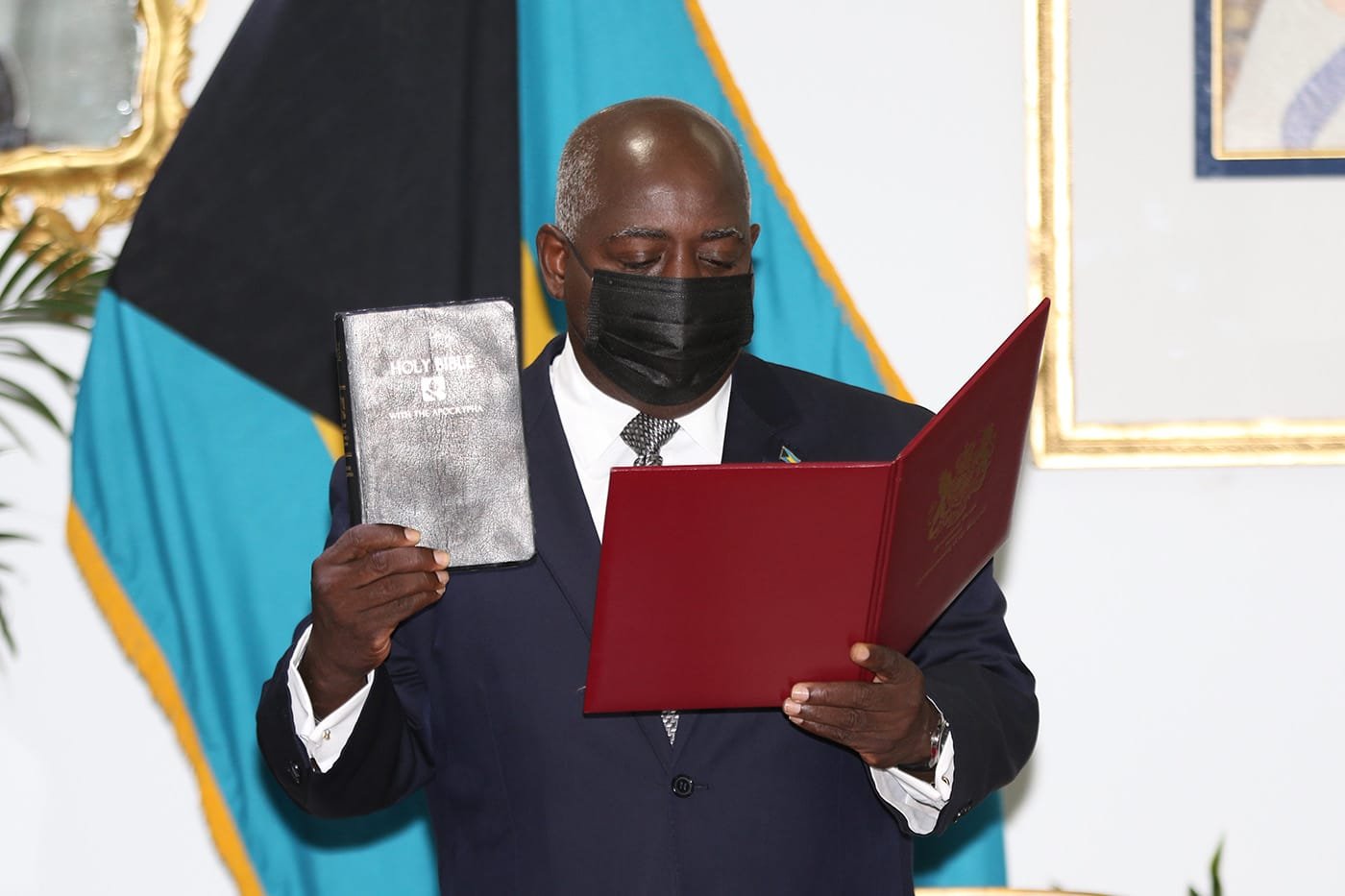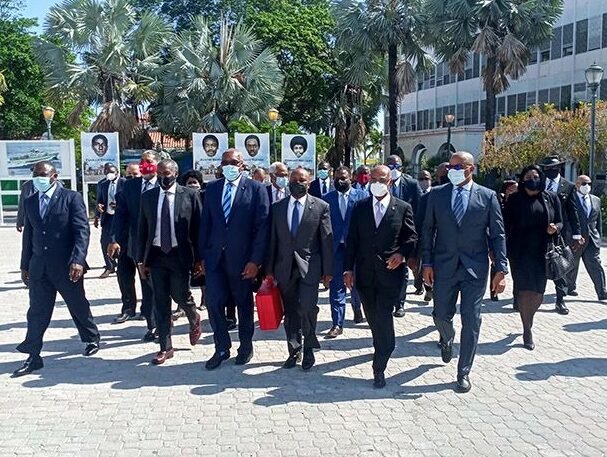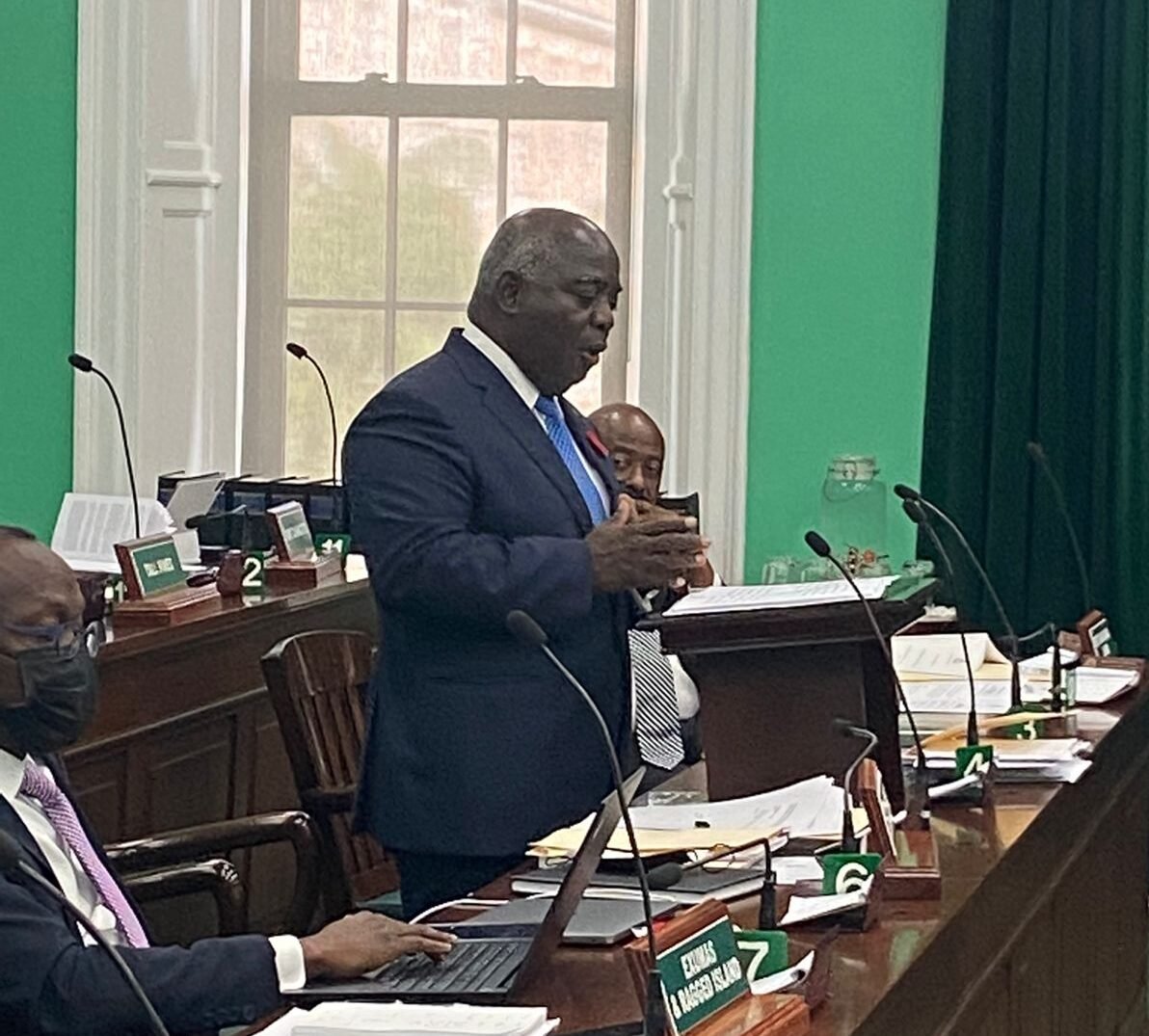NASSAU, BAHAMAS — Prime Minister Philip Brave Davis today revealed that there is a whopping $1 billion difference between the numbers provided in the former administration’s pre-election economic & fiscal update report and the government’s actual liabilities.
While presenting a 2021/22 supplementary budget in Parliament, the prime minister blasted the Minnis administration for failing to present the state of the nation’s finances to the Bahamian public in a transparent manner.
The prime minister noted he will amend the Fiscal Responsibility Act to strengthen the provisions concerning information and assistance to the Fiscal Responsibility Council.
“As the minister of finance, I requested, upon coming to office, a full accounting of the government’s fiscal position,” said Davis.
“To this end, a renowned accounting firm has been reviewing information provided by the Ministry of Finance with respect to liabilities of the government as of September 30, 2021, which is approximately one month following the issuance of the pre-election report.
“The numbers provided by the Ministry of Finance for the period ending September 30, 2021, reveal a $1 billion difference from the numbers provided by the previous government in their pre-election report.”
Davis added: “It is painfully clear that the pre-election report was an incomplete presentation of the government’s contingent and real liabilities.

“For example, it excluded over $100 million of contracts executed by the Ministry of Works, for which no funding has been provided in the budget.
“It omits underfunding of pension and gratuity payments for public officers, which is now being addressed in this supplementary budget.
“The pre-election report omitted a loan assumed by the government, for which the only source of payment is BPL (Bahamas Power and Light), an entity with significant financial challenges.
“It excludes amounts owing for taxes for a star witness in a criminal case of a former Cabinet minister. This very unusual arrangement is supported by a promissory note signed by a senior official of the Ministry of Finance.
“It excludes court judgments made against the government, for which funding now has to be provided in this supplemental budget. It makes no mention of potential liabilities emanating from contract breaches committed by the former administration.”
Davis said that once the final report is in hand, it will be presented to Parliament, noting that not all of these obligations can be accommodated within the existing framework.
“The important thing is that many of these entities are satisfied that our government firstly acknowledges that funds are owed and secondly is committed to resolving these matters in an amicable manner,” said Davis.
Woes in govt departments
Davis also blasted the previous administration over its claims that revenue administration reform and modernization were top priorities, suggesting that this was not the case.

“Take, for example, the Department of Inland Revenue, which is responsible for the collection of more than 40 percent of the total revenue of the government,” said Davis.
“On coming to office, we found a department without a permanent head or deputy since 2017 — a department with a staff complement of 215 employees, of which 114 are contractual employees. Of those contractual employees, 90 of them are working with no contracts.
“No Bahamian employee contracted to work at the department under the previous administration has a valid contract or has been made a part of the permanent establishment. This meant that Bahamians who worked at the department for the last four years were being sent home jobless without any notice or recourse.
“It is no surprise that morale in the Ministry of Finance and its agencies was so low when we assumed office.”
Davis further noted that the situation is no better in the Customs Department, which is the nation’s second-largest revenue-collecting agency.
“Young officers engaged by the previous PLP (Progressive Liberal Party) administration are still awaiting reclassification after four long years,” the prime minister said.
“The department operated for four years with an executive team of two individuals. Just prior to the elections, long-awaited promotions were released, but given the number of supersessions at the senior level, the morale of the department — and by extension, its efficiency as a collector of revenue — is at an all-time low.”
Borrowing
The prime minister accused the Minnis administration of not exercising prudence in its borrowing activities. Davis referred to the $250 million International Monetary Fund (IMF) disbursement, which subsequently became mired in controversy after an auditor general’s report noted that the former administration had not complied with a key condition of the IMF facility, which was to disclose publicly who received contracts from the borrowed funds.
“I have now been advised by the officials within the Ministry of Finance that this loan was entered into without a legal opinion to confirm whether the government could comply with the terms, and there was no provision made on an ex-post basis to comply with the terms of the financing,” said Davis.
Davis also referenced a $100 million World Bank Hospital Loan to expand hospitals on Grand Bahama and New Providence. According to Davis, this too was poorly managed and poorly planned, and as a result, the interest and fees associated with the loan were placed on the backs of the Bahamian public, even though no architectural drawings or final costing had been completed and no contract had been signed.


















